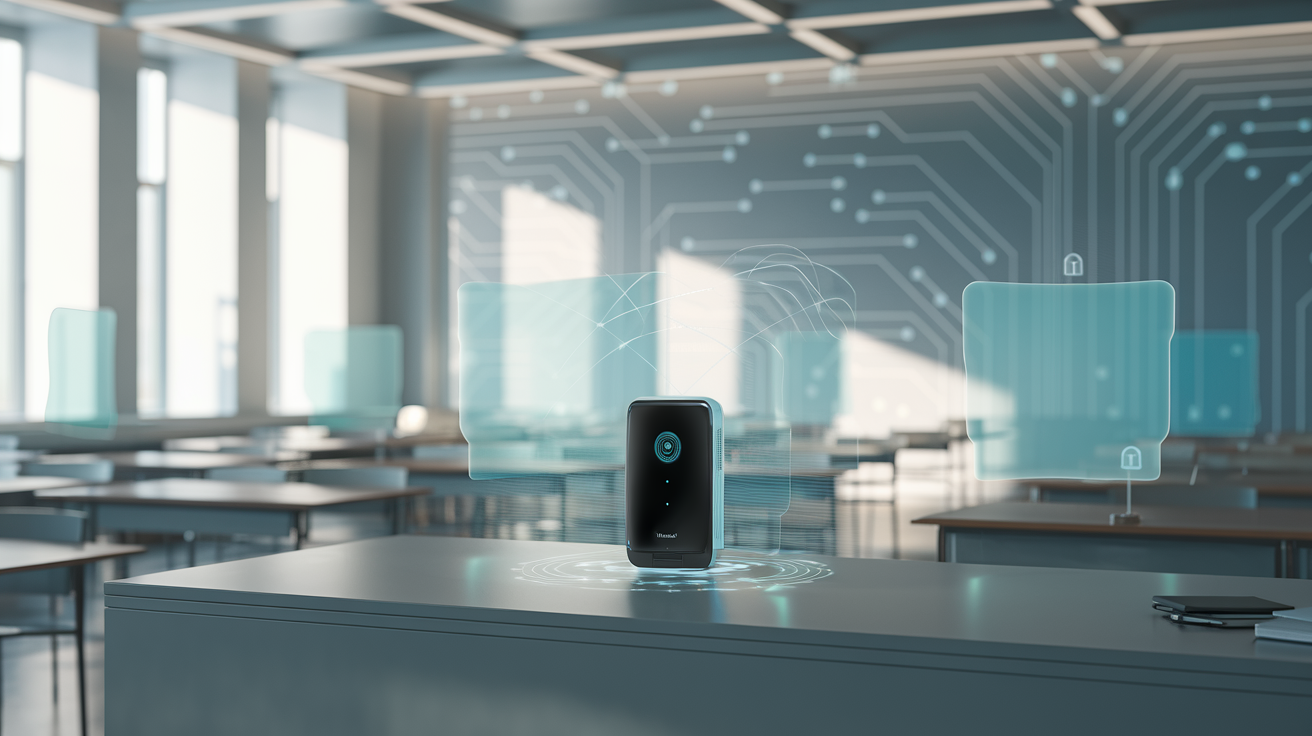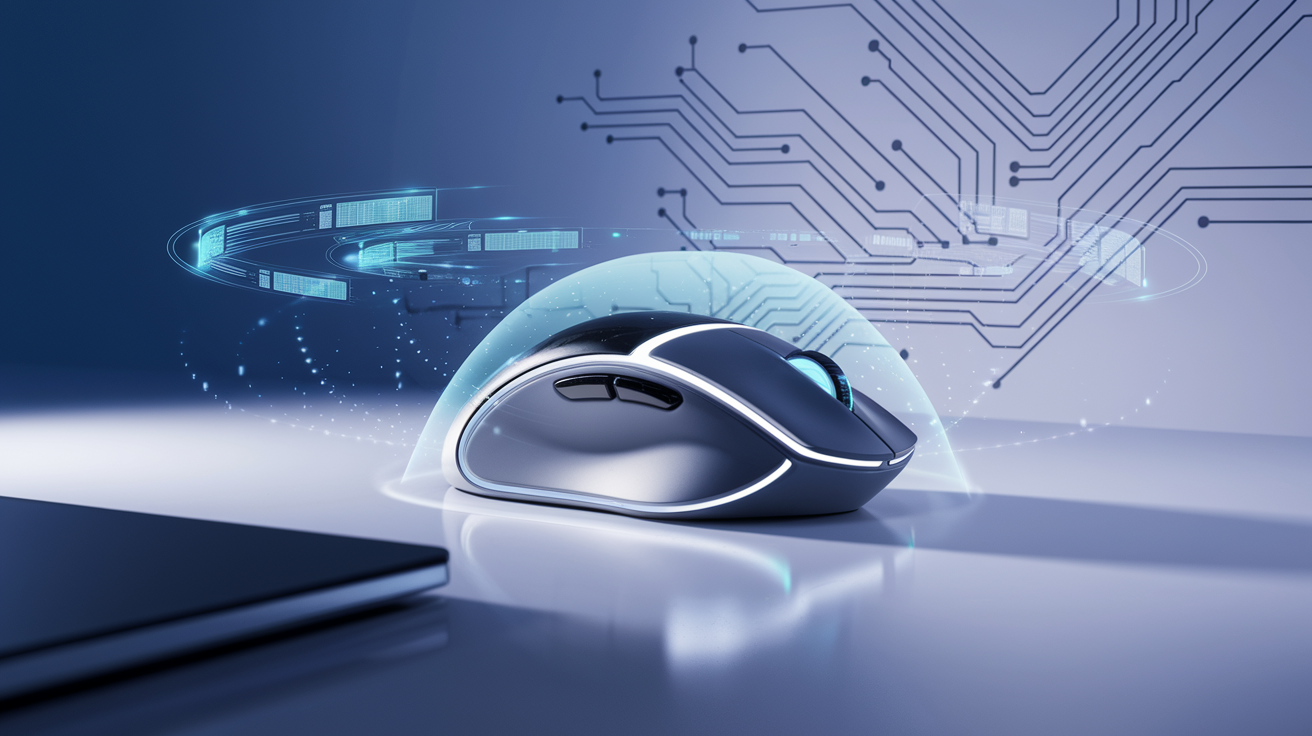
MOE AI Roadmap Explained: What Singapore Parents Need to Know
Posted by Aipilot on
Table Of Contents
- Introduction
- Overview of the MOE AI Roadmap
- Key Initiatives Under the Roadmap
- What Changes Can Parents Expect?
- How to Prepare Your Child for AI-Integrated Education
- Partnering with Schools
- Conclusion
Introduction
Singapore's education system stands at the threshold of a significant transformation as the Ministry of Education (MOE) unveils its comprehensive AI Roadmap for 2025. As a parent navigating this rapidly evolving educational landscape, understanding these changes is crucial for supporting your child's learning journey. The integration of artificial intelligence into Singapore's education framework isn't merely about introducing new technologies—it represents a fundamental shift in how students learn, how teachers teach, and how schools operate.
The MOE AI Roadmap aims to equip Singapore's students with the skills and knowledge necessary to thrive in an increasingly AI-driven world. For parents, this initiative raises important questions: How will classroom experiences change? What new skills will our children need to develop? How can we best support them through this transition?
This guide breaks down the MOE AI Roadmap into clear, practical information for parents. We'll explore the core components of the roadmap, examine how it will affect your child's educational experience, and provide actionable strategies to help your family navigate this exciting but complex transition. By understanding these upcoming changes, you'll be better positioned to support your child's success in Singapore's AI-enhanced education system.
Singapore's MOE AI Roadmap 2025
What Parents Need to Know About AI in Education
Curriculum Integration
- AI concepts embedded across all subjects
- Primary: Digital literacy foundations
- Secondary: Hands-on AI projects
- JC: Specialized AI applications
Teacher Development
- Comprehensive AI literacy training
- Subject-specific AI integration techniques
- Establishment of AI mentor teachers
- Cross-school collaboration networks
Infrastructure Development
- Enhanced school connectivity
- Age-appropriate AI learning platforms
- Digital resources for teachers
- Industry partnerships for real-world tools
Classroom Learning Transformations
Personalized Learning
AI platforms adapt to individual student needs, strengths, and learning paces
Project-Based Approach
Students apply AI concepts to solve real-world problems through collaborative projects
Evolving Assessment
Performance-based evaluations that test practical AI application and ethical reasoning
How Parents Can Prepare Children
Develop Digital Literacy
- Encourage creative technology exploration
- Teach digital safety fundamentals
- Introduce age-appropriate coding concepts
Foster Critical Thinking
- Discuss information evaluation techniques
- Encourage healthy skepticism about AI
- Explore age-appropriate ethics questions
Partner with Schools
- Attend parent education sessions
- Maintain regular teacher communication
- Observe AI-enhanced learning demos
Overview of the MOE AI Roadmap
Singapore's Ministry of Education has developed its AI Roadmap as a strategic response to the growing prevalence of artificial intelligence in global society. The roadmap represents a comprehensive plan to integrate AI across Singapore's education system by 2025, combining curriculum enhancements, teacher training programs, and infrastructure developments.
At its core, the MOE AI Roadmap is guided by several fundamental principles: ensuring equitable access to AI education for all students, maintaining Singapore's competitive edge in global education, and preparing students for future workforce demands where AI literacy will be essential. The roadmap recognizes that today's students will graduate into a world where AI significantly impacts careers across virtually every sector.
The MOE's vision extends beyond simply teaching students about AI. Rather, it aims to create an education ecosystem where artificial intelligence enhances the learning process itself, provides personalized support to students with diverse needs, and empowers teachers with new instructional capabilities. This marks a shift from viewing AI solely as a subject to be studied to embracing it as a transformative tool for education.
Implementation of the roadmap will occur in phases, with different initiatives rolling out across preschool, primary, secondary, and post-secondary levels from 2023 through 2025. Each phase focuses on age-appropriate AI integration, ensuring students build progressively sophisticated understanding as they advance through the education system.
Key Initiatives Under the Roadmap
The MOE AI Roadmap encompasses several strategic initiatives designed to transform Singapore's education landscape. These initiatives work together to create a comprehensive approach to integrating AI into the educational experience.
Curriculum Integration
One of the roadmap's cornerstone initiatives is the thoughtful integration of AI concepts across subject areas. Rather than treating AI as an isolated topic, the MOE is embedding relevant concepts throughout the curriculum:
In mathematics, students will explore the algorithms and statistical concepts that underpin AI systems. Science lessons will incorporate explorations of how AI applications solve real-world problems. Even humanities subjects will examine the ethical, social, and cultural implications of artificial intelligence in society.
For primary school students, the focus will be on developing foundational digital literacy and computational thinking. In secondary schools, students will engage with more complex AI concepts and participate in hands-on projects using simplified AI tools. At the junior college level, students will have opportunities to explore specialized AI applications in their areas of academic interest.
This cross-disciplinary approach helps students understand AI not as an abstract technical concept but as a versatile tool with applications across all areas of knowledge and human endeavor.
Teacher Development
Teachers stand at the forefront of implementing the AI Roadmap, making their preparation crucial to its success. The MOE is investing significantly in comprehensive teacher development programs that include:
Professional development workshops that build teachers' AI literacy and technical competencies. Specialized training for subject teachers on integrating AI-related concepts into their specific disciplines. Opportunities for teacher collaboration across schools to share best practices in AI education.
The roadmap also establishes AI mentor teachers within each school—educators with advanced training who can guide their colleagues through the implementation process. This creates a sustainable model where expertise is distributed throughout the education system rather than concentrated in a few specialists.
By empowering teachers with both knowledge and confidence in AI, the MOE ensures that classroom implementation will be pedagogically sound and aligned with broader educational objectives.
Infrastructure and Resources
Successful AI integration requires robust technological infrastructure. The MOE Roadmap includes significant investments in:
Enhanced connectivity across schools to support AI applications that require substantial data processing. Age-appropriate AI learning platforms that provide students with hands-on experience. Digital resources that help teachers effectively incorporate AI concepts into their lessons.
The infrastructure improvements extend beyond hardware and software to include curriculum resources like textbooks, learning modules, and assessment frameworks that incorporate AI concepts. The MOE is also developing partnerships with industry leaders to ensure that educational AI tools reflect real-world applications.
This comprehensive resource development ensures that AI education will be accessible to all students regardless of their school's existing technological capabilities, maintaining Singapore's commitment to educational equity.
What Changes Can Parents Expect?
As the MOE AI Roadmap takes effect, parents will notice several significant changes in their children's educational experience. Understanding these changes can help families better support students through this transition.
Classroom Learning Transformations
The traditional classroom experience will evolve in several notable ways under the AI Roadmap. Parents can anticipate:
More personalized learning experiences as AI-powered platforms adapt to individual student needs, strengths, and learning paces. This means your child might progress through certain material faster or receive additional support in challenging areas based on AI-generated insights about their learning patterns.
Project-based learning will gain greater prominence as students apply AI concepts to solve realistic problems. Your child might engage in collaborative projects that use AI tools to analyze data, recognize patterns, or generate creative solutions to complex challenges.
The physical classroom environment will increasingly incorporate technology that supports AI-enhanced learning, including smart displays, interactive learning stations, and devices that facilitate AI-assisted instruction.
These transformations aim to create more engaging, relevant learning experiences that prepare students for future educational and career opportunities where AI literacy will be valuable.
Assessment Methods
The integration of AI into education necessitates rethinking how student learning is evaluated. Parents should be aware of evolving assessment approaches:
Traditional examinations will be supplemented with performance-based assessments that evaluate students' ability to apply AI concepts in practical scenarios. Your child might be assessed on their capacity to identify appropriate AI applications for specific problems or to evaluate the ethical implications of AI deployment.
Continuous assessment will become more sophisticated as AI tools provide teachers with real-time data on student progress, allowing for timely interventions and support. This means potential learning difficulties can be identified and addressed earlier.
Students will increasingly be evaluated on their ability to work collaboratively with AI tools, reflecting the reality that future workplaces will require humans and AI systems to function as effective teams.
These assessment changes reflect a shift toward evaluating skills that will remain relevant in an AI-augmented society, including critical thinking, ethical reasoning, and technological discernment.
Potential Challenges
While the AI Roadmap offers exciting opportunities, parents should also be aware of potential challenges that may arise:
Varying levels of technological readiness among students could create temporary disparities as some adapt more quickly to new learning modalities. Families with limited technology access at home might find their children at an initial disadvantage, though the MOE is implementing measures to address this concern.
The balance between technological and human elements of education will require careful navigation. Some students might need additional support in maintaining human connection and communication skills as technology becomes more prevalent in the classroom.
Parents themselves may experience a learning curve in understanding new educational approaches and technologies. The concepts and tools your child uses might differ significantly from your own educational experience, potentially complicating homework support.
Acknowledging these challenges allows parents to proactively seek resources and support to ensure their child thrives during this educational evolution.
How to Prepare Your Child for AI-Integrated Education
Parents play a crucial role in helping children adapt to and succeed in an AI-enhanced education system. Several strategies can support your child's readiness for these changes.
Developing Digital Literacy
Building foundational digital skills provides children with confidence as they encounter increasingly sophisticated technology in the classroom:
Encourage age-appropriate technology exploration at home, focusing on creative and educational applications rather than passive consumption. Help your child understand the basics of digital safety, privacy, and responsible technology use.
Introduce simple programming concepts through child-friendly platforms that make coding accessible and engaging. Even young children can benefit from exposure to computational thinking through gamified learning experiences.
Discuss how technology works in everyday life, fostering curiosity about the AI systems they encounter—from voice assistants to recommendation algorithms in streaming services.
Tools like TalkiCardo Smart AI Chat Cards can provide a safe, controlled environment for children to develop comfort with AI interactions while building communication skills. These educational tools create opportunities for children to practice digital communication in an age-appropriate way.
Fostering Critical Thinking
Perhaps the most valuable skill in an AI-integrated world is the ability to think critically about information and technology:
Engage your child in discussions about how they would evaluate information from different sources, including AI-generated content. Ask open-ended questions that prompt analytical thinking about the world around them.
Encourage healthy skepticism about technology by discussing both the capabilities and limitations of AI systems. Help them understand that while AI can process vast amounts of information, human judgment remains essential.
Explore ethical questions about technology use in age-appropriate ways, such as discussing fairness, privacy, and the importance of human oversight in automated systems.
These critical thinking skills will help your child navigate not only educational AI but also the increasingly AI-influenced world they will encounter throughout their lives.
Embracing Complementary Learning Tools
Supplementary tools can enhance your child's readiness for AI-integrated education while providing valuable learning experiences:
Consider educational AI tools designed specifically for home use that align with school curriculum objectives. These can reinforce classroom learning and provide additional practice in key concept areas.
The AI Teaching Assistant can provide personalized support for challenging subjects, offering explanations tailored to your child's learning style and pace. With visual learning capabilities, these assistants can break down complex concepts into understandable components.
For multilingual families or children learning additional languages, tools like TalkiTrans can facilitate language learning by providing real-time translation during conversations, creating an immersive language environment at home.
Interactive learning tools such as the AI Mouse can help younger children develop comfort with voice-controlled technology while practicing digital commands and responses—skills that will become increasingly relevant in AI-enhanced classrooms.
By thoughtfully incorporating these complementary tools into home learning, parents can help bridge school and home educational experiences while building their child's confidence with AI technology.
Partnering with Schools
Effective parent-school collaboration becomes especially important during this educational transition. The MOE Roadmap recognizes parents as essential partners in successful AI integration.
Schools will be organizing parent education sessions to familiarize families with new educational approaches and technologies. Attending these sessions can provide valuable insights into classroom changes and how to support your child's learning at home. Don't hesitate to ask questions during these sessions—many other parents likely share your concerns.
Regular communication with teachers becomes even more valuable during this transition period. Teachers can provide specific guidance on how your child is adapting to new learning modalities and what additional support might benefit them at home.
Many schools will create demonstration opportunities where parents can observe AI-enhanced learning in action. These experiences can demystify new educational approaches and help parents understand the practical applications of the AI Roadmap in daily classroom activities.
By actively engaging with these school partnership opportunities, parents gain the knowledge and context needed to effectively support their children through educational changes.
Conclusion
Singapore's MOE AI Roadmap for 2025 represents a forward-thinking approach to education that acknowledges the increasingly important role of artificial intelligence in our society and economy. For parents, understanding these changes is the first step toward effectively supporting your child through this educational evolution.
The integration of AI into Singapore's education system offers exciting possibilities: more personalized learning experiences, development of future-ready skills, and innovative approaches to long-standing educational challenges. At the same time, it requires thoughtful implementation to ensure that technology enhances rather than diminishes the human elements of education that remain irreplaceable.
As parents, your role extends beyond simply understanding the roadmap—you have the opportunity to help shape how these changes unfold in your child's educational journey. By fostering digital literacy and critical thinking at home, exploring complementary learning tools, and actively partnering with schools, you can help your child not just adapt to but thrive in an AI-enhanced educational environment.
The MOE AI Roadmap isn't merely about introducing new technologies into classrooms—it's about preparing Singapore's students to become confident, ethical, and innovative participants in a future where AI will be an integral part of work and life. With understanding and proactive engagement, parents can ensure their children emerge from this educational transformation well-equipped for the opportunities and challenges that lie ahead.
Prepare your child for Singapore's AI-integrated education system with AIPILOT's innovative learning solutions. From interactive AI learning tools to personalized language development systems, we're helping families navigate the future of education with confidence. Visit our website to discover how AIPILOT's educational technology can complement your child's learning journey in alignment with MOE's AI initiatives.

































